הקדמה
מחקר שנערך ע"י Boston College Center צופה, כי במהלך 50 השנים הבאות, תתבצע בארה"ב העברת עושר בין דורית בגובה של 59 טריליון דולר, עלייה משמעותית ממחקרים קודמים, שצפו עליה של 40 טריליון דולר לערך. האסטרטגיות שישמשו ליישום העברת העושר האמורה, יכולות להשתנות ממשפחה למשפחה.
הדורות הצעירים יפיקו יתרונות רבים מכך שהוריהם ידברו עימם על העברת העושר הצפויה. בין יתרונות אלה ניתן לכלול: העלאת המודעות לעושר וערכי המשפחה, נטיעת תחושה של ניהול כספים אחראי ויכולת לייצר אינטראקציה עם יועצים של המשפחה.
על-אף היתרונות הברורים בתכנון משפחתי, בעבור הורים, ההתלבטות בין העברת עושר לדורות הצעירים ולימוד נושאים הקשורים בניהול כספים, לבין העלאת רמת החיים והשרידות של ההורים עצמם, יכולות לעלות מספר שאלות:
- כמה כדאי להותיר לדור הבא?
- כיצד אני מאזן בין הרצון להשאיר מספיק עבור ילדי לבין הגדלת רשת הביטחון עבורי?
- מהם הכלים הטובים ביותר בכדי להמחיש אחריות בניהול הנכסים לדור הבא?
- מהם היתרונות בהעברת עושר בין דורית?
- האם עדיף להיות פעיל בנושא כבר עתה או לחכות לעת פטירה?
- האם העסק המשפחתי שהקמתי ימשיך ע"י הדור הצעיר?
מאמר זה דן בתהליך בן מספר שלבים, אשר מטרתו לסייע להשיב על שאלות רבות מהסוג המוצג לעיל, ולהעניק הכוונה למשפחות ולמתכננים פיננסיים המעורבים בתכנון העברת עושר בין דורית. מטרת תהליך זה הינה לקדם את ערכי המשפחה ולספק בסיס איתן מנקודות מבט של מיסוי והשקעה.
שלב ראשון: הגדרת ההיסטוריה והערכים המשפחתיים
השלב הראשון בתכנון מוצלח של העברת עושר בין דורית, הינו הגדרת ואפיון התא המשפחתי באמצעות מבט על ההיסטוריה המשפחתית וערכי המשפחה. הגדרה זו תתבצע ע"י המשפחה באמצעות המתכנן הפיננסי שלה.
כיום, הגדרת המשפחה משתנה ללא הרף ואינה כוללת רק את הצאצאים, אותם מחשיב היחיד כחלק מהמשפחה, אלא כוללת מאפיינים רבים ומגוונים. לדוגמא: גיל, ניסיון ומגמות חברתיות הינם מאפיינים, היכולים לסייע בהגדרת המשפחה.
באופן זה, לא משנה אילו יוזמות תכנון בוחרת המשפחה לבצע, בכדי שתכנון העברת עושר בין דורית יהיה אפקטיבי, על המשפחה להגדיר את דרכה.
מתכנן פיננסי יכול לסייע למשפחה ולכוון אותה, באמצעות שאלות, כגון:
- את מי מבין בני משפחתך תרצה לערב בתכנון?
- האם אתה מעוניין, כי יוזמות התכנון שלך תהינה ידועות לכל?
- האם יש לך דאגות הנוגעות להעברת עושר לדורות הצעירים?
- איזה ניסיון קיים למשפחתך עם תכנוני מס?
ברגע שניתנת הגדרה המאפיינת את המשפחה, קל יותר למתכנן הפיננסי להציע מטרות ויוזמות, שיעמדו בקנה אחד עם ההיסטוריה המשפחתית וערכיה.
שלב שני: תזמון
הרבה הורים שואלים יועצים באיזה גיל ראוי לערב ילדים ביוזמות התכנון שלהם. בהקשר זה, מעורבות ילדים ביוזמות תכנון עושר וניהול כספי המשפחה החל בגיל צעיר, בדרך-כלל תסייע להפיק יתרונות משמעותיים.
הורים יכולים ללמד את ילדיהם על ערך הכסף בדרכים שונות. בעבור הורים מסוימים, הלימוד בנושאי כסף מתחיל בהענקת דמי כיס בגיל צעיר. בעבור הורים אחרים, הלימוד בנושאי כסף מתחיל עם פתיחת חשבון בנק לילד, המסביר, בין היתר, את הערך שבחסכון.
על אף האמור, אין להכריח ילדים להשתתף בתחום ניהול כספי המשפחה או ללמוד על התהליך. הרצון להיות חלק, יוביל להצלחה גדולה יותר של התהליך מאשר הטלת חובה. הורים צריכים להביא בחשבון מתודות שונות בכדי ליצר מעורבות מוצלחת של הדורות הבאים בניהול כספים, מאשר רק בהטלת חובה על הילד, ברגע שהגיע לגיל מסוים.
הדבר הכי חשוב בנושא, שהורים הנהנים ללמד את ילדיהם על ניהול כספים ועל הפקת הישגים מניהול כספם כראוי, יצליחו לפתח את המודל הטוב ביותר.
שלב שלישי: שיתוף בכסף
השלב השלישי להצלחת תכנון העברת עושר בין דורית הינו לקבוע את הסכום אותו הורים רוצים להעביר לדורות הבאים. בהקשר זה, יש לחתור למציאת האיזון המתאים בין שני כוחות מנוגדים – הסכום אותו ההורה רואה כהכרחי לכך שילדיו יוכלו לשמור על רמת החיים שלהם, העומד כנגד הרצון של ההורה לראות, כי ילדיו מפתחים מוסר עבודה משלהם.
הבעיה המרכזית עמה מתמודדים מתכננים פיננסיים רבים, הינה לקוחות המודאגים מכך שילדים ודורות צעירים מקבלים הרבה מדי ומוקדם מדי. בעוד שלהורים ישנה נטייה להוריש לילדיהם, הם אינם מעוניינים שהורשה זו תגרום להרס משפחתם. בהקשר זה, קרן נאמנות שושלתית, כפי שתפורט בהמשך, יכולה להוות מכשיר בעל ערך רב לתכנון העברת עושר בין דורית.
הסכומים אותם הורים רוצים להעביר לדורות הבאים יכולים להשתנות באופן מהותי. לאור האמור, מתכנן פיננסי הינו גורם מהותי בשלב תכנון זה. מתכנן פיננסי יכול לסייע ע"י יצירת תחזיות, שיעריכו את הסכום הנדרש לשימור אורך החיים, הנהוג בקרב המשפחה, ובה בעת לאפשר למשפחה לממש את מטרותיה בהורשה. המתכנן הפיננסי יכול לייעץ על כלי השקעה שונים ומגוונים באמצעותם ההורים יכולים להשיג את מרבית המטרות הנ"ל.
שלב רביעי: בחירת כלי התכנון הנכון להעברת עושר
לא כל כלי תכנון יתאים לכל היסטוריה משפחתית, ערכים, מטרות והצהרת כוונות. לכן, על המתכנן הפיננסי לעבוד בשיתוף עם המשפחה בכדי להצליח ולייעץ על כלי העברת העושר, המתאים ביותר עבורה.
כל אחת מהאופציות המתוארות להלן, יכולה להוות כלי ראוי להעברת עושר בעבור לקוח נתון:
- ירושת עסק משפחתי –עסק משפחתי לרוב מהווה נושא מרכזי בתכנון משפחתי של העברת עושר בין דורית. העברת נכס משפחתי לדורות הבאים לא רק שמעלה סוגיות מורכבות בתחומים פיננסיים, מיסויים ומשפטיים, אלא מעלה סוגיות קריטיות בתוך התא המשפחתי. לדוגמא:
- לאילו בני משפחה יועבר העסק המשפחתי?
- האם ישנם בני משפחה, שיותר מעורבים בעסק מאחרים?
- כיצד המוריש יכול לאזן את הנכסים בקרב בני משפחה, שלא יקבלו חלק מהעסק?
- כיצד מוריש, המעביר את העסק המשפחתי במותו לילדיו, יכול להבטיח כי לבן הזוג הנותר בחיים תיוותר הכנסה?
בשל סוגיות אלה, העברת עסק משפחתי לדורות הבאים, בדרך-כלל אינה צולחת. ממחקר שנערך בארה"ב בקרב עסקים בבעלות משפחתית, עולה כי מתוך 100 עסקים מוצלחים ורווחיים ככל שיהיו, רק שישה ישרדו ארבעה דורות ומאוחר יותר. עפ"י נתוני המחקר, 70% מהעסקים המשפחתיים לא יצליחו לעבור מהדור הראשון לשני, 50% מהדור השני לשלישי ו- 60% מהדור השלישי לרביעי. זאת ועוד, ממאמר שפורסם ברבעון "מקינזי" עולה, כי רק 5% מהעסקים המשפחתיים ממשיכים לייצר ערך לבעלי המניות שלהם אחרי שעברו לשליטת הנכדים, מאחר ואלו נוטים להקדיש זמן רב למאבקי כוח בינם לבין עצמם מאשר לקידום העסק.
מתכנן פיננסי יכול לסייע בהתמודדות עם מורכבות הליך העברת העסק המשפחתי מדור לדור, באמצעות בחירת הכלי הנכון ביותר להעברה מוצלחת של העסק המשפחתי לדורות הבאים. שותפות משפחתית מוגבלת ומכירות בתשלומים הינן הכלים השכיחים להעברת עסק משפחתי לדורות הבאים אותם נוהג המתכנן הפיננסי לשלב עם אסטרטגיית הענקת מתנות, התורמת לייעול העברת העסק מהיבטי מיסוי.
- אסטרטגיית הענקת מתנות – טכניקה נוספת בה משתמשים באופן שכיח להעברת נכסים לדורות הבאים הינה תוכנית שנתית להענקת מתנות. כיום בישראל, אין הגבלה על היקף העברת המתנות מדור לדור.
כמו בכל אסטרטגיה של העברת נכסים, אך במיוחד בנוגע להענקת מתנות, המתכנן הפיננסי חייב לברר בטרם הצעת מכשיר זה ללקוח, כי אכן הוא תואם את אופיו והתנהלותו של הלקוח עם כסף.
על אף שמדובר במכשיר קל ליישום, הענקת נכסים במתנה במהלך החיים אינה מתאימה לכל אדם. בעבור חלק מהלקוחות, נתינה כזו תעורר פחד משום שבאמצעות הענקת נכסיהם במתנה ייתכן והם יהיו חשופים למצב בו לא יוותר להם כסף לחיות את חייהם, כפי שהיו רוצים לחיות אותם. במקרים כאלה, אסטרטגיה של צוואה תהיה מתאימה יותר.
- קרן נאמנות שושלתית – קרן נאמנות כזו נבנית בכדי להחזיק בנכסים בנאמנות ללא העברת בעלות ישירה לשום מוטב. דורות ההמשך יכולים ליהנות מקבלת הכנסות והנכסים, הנותרים בנאמנות בקרן, מיצרים תשואות עתידיות. בנוסף, עם תכנון נאות, קרן נאמנות זו יכולה לספק הכנסות, העברות ותשואות פטורות ממס.
קרן נאמנות זו יכולה להיות חלק חשוב מתכנון העברת עושר בין דורית משפחתית. אם ההורים מודאגים כי הילד יקבל יותר מדי ומוקדם מדי, קרן נאמנות זו יכולה להיות הפתרון המושלם. לדוגמא: ההורים יכולים לקבוע גבולות בנוגע למועד בו הילד יכול למשוך נכסים מהקרן או להחליט שהנכסים יחולקו רק לפי שיקולו של הנאמן והילד לעולם לא יוכל למשוך באופן מלא את הכספים מהקרן.
בנוסף, קרן נאמנות זו הינה פתרון נפוץ למצב בו ההורים רוצים להעביר נכסים לילדם, אך מודאגים ממידות רעות של הילד כגון סמים ואלכוהול. במקרה כזה, יועץ המנסח את תנאי קרן הנאמנות, יכול להכניס סעיף, האומר כי מתן הכסף המופקד בנאמנות, יינתן רק במידה והילד ייתקן את מידותיו הרעות.
ולבסוף, קרן נאמנות שושלתית יכולה להיבנות במהלך חיי ההורים או כחלק מצוואה.
שלב חמישי: פגישה משפחתית
אנו חיים בעולם גלובלי. בני המשפחה לעיתים חיים רחוק אחד מהשני ובנפרד. הפגישה המשפחתית אינה רק צעד חשוב לתכנון העברת עושר בין דורית, אלא בעלת יתרונות נוספים של הפגשת דורות של בני משפחה, אשר אינם חיים אחד לצד השני.
בדרך-כלל חשוב, כי בפגישות משפחתיות אלה יהיה נוכח מתכנן פיננסי שינחה את המפגש. הפגישה המשפחתית הינה דרך אפקטיבית לסקור את מטרות העברת העושר של המשפחה. המתכנן הפיננסי ידאג לכך שבמהלך הפגישה ההורים ישתפו את ילדיהם בתכניותיהם להעברת עושר. השיתוף האמור יהפוך את הילדים לחלק אינטגרלי בהליך העברת העושר, יגייס את שיתוף הפעולה שלהם להצלחת ההליך ויוודא זרימה חלקה של ההליך בין בחיי ההורים ובין במותם.
במעמד זה, המתכנן הפיננסי יכול לדבר על תיק הנכסים, אשר ישמש ליישום התוכנית ובאופן ספציפי לסקור את הכלים שישמשו להשלמת העברת העושר. באמצעות מהלך זה, ההורים יוכלו לסקור את מטרות תכנון ההעברה והילדים ירוויחו הבנה טובה יותר של תיק הנכסים שיועבר אליהם עם הזמן.
בנוסף ליתרונות שנסקרו לעיל, הפגישה המשפחתית יכולה לשמש גם לדיון באפקטיביות וביעילות של התוכנית להעברת העושר שנקבעה. היעילות תימדד הן באמצעות מידת המעורבות של כלל בני המשפחה ביוזמות העברת העושר והן באמצעות הגידול בנכסים והמטרות שהושגו.
שלב שישי: תמיכה מתמשכת
תכנון העברת עושר בין דורית הינו תהליך ולא אירוע חד פעמי. השלב השישי בתכנון מוצלח של העברת עושר בין דורית הינו תמיכה מתמשכת של המתכנן הפיננסי.
ישנם יחידים, גם אלו שיצרו תוכנית להעברת עושר בין דורית, שמתנגדים להמשך דיון בנושא ולעדכונים באשר לתכנית. זאת ועוד, ישנם מתכננים פיננסיים, התוהים אם ראוי להמשיך ולהמליץ על רעיונות נוספים לתכנון ועל הזדמנויות קיימות למשפחות שבנו תכנית להעברת עושר בין דורית. עם זאת, לקוחות בדרך-כלל מעוניינים שהמתכננים הפיננסיים שלהם ימשיכו ליזום דיונים ויציעו הצעות בנוגע לתכנית ההעברה שנקבעה.
סיכום
להעברת העושר הבין דורית תהיה השפעה מהותית על עתיד משפחות. בכדי שהעברת העושר תהיה חלקה, חשוב כי משפחות ומתכננים פיננסיים יעבדו יחד בכדי לפתח תכנית ברורה, אשר תשמש להעברת נכסים מדור לדור.
הורים צריכים לקחת בחשבון את הדרך היעילה ביותר לשתף את ילדיהם בערכי ניהול הכסף שלהם ע"י קביעת הגיל הנכון לשיתופם, הסכומים שיועברו והכלים שישמשו להשגת מטרותיהם.
ילדים צריכים להיפתח לרעיון ניהול הכסף, כך שבמרוצת השנים יפתחו מטרות ויוזמות משלהם.
בנוסף, מתכננים פיננסיים חייבים להיות אקטיביים בשיחות עם לקוחותיהם בנושאי העברת עושר בין דורית ולשמר קשר עקבי בכדי לסקור את התכנית שנקבעה.
עם שיתוף פעולה מלא בין הורים, ילדים וממתכננים פיננסיים כולם יצאו נשכרים.
* הכותב הינו מנכ"ל דה סרוויס תכנון פיננסי ומשמש כיו"ר אגוד המתכננים הפיננסיים בישראל.








